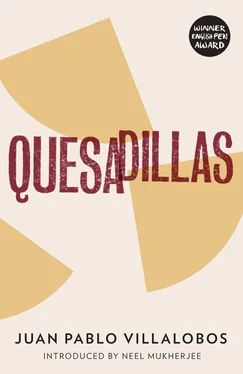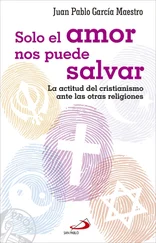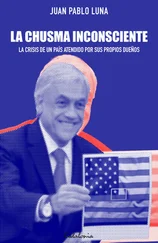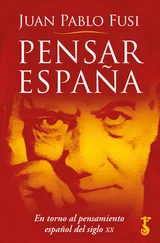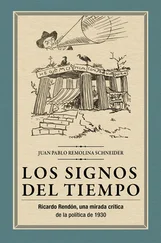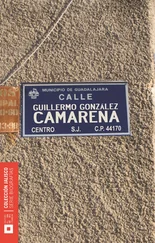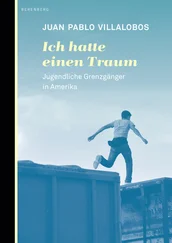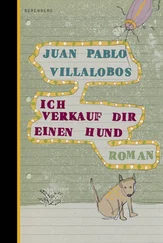In an attempt to size up the neighbours and rescue them from the gloom of anonymity, my first approach was to imagine that they looked like teddy bears. All three were sturdy, ever so slightly fat, but not obese, just chubby — they enjoyed that excess of weight usually considered a sign of good taste in families with money. They smelt nice, their clothes were perfectly ironed, their shoes were shiny and their eyes were blue. They could easily be bears in a children’s story; they made you want to sneak into their house to steal their soup and have a siesta in their beds.
We offered them a seat on the sofa in the living room, my mother and father brought chairs in from the kitchen and the rest of us spread ourselves out on the floor on our behinds. Our neighbours snubbed us by sitting on the edge of the sofa, perching, barely touching it. Technically they weren’t sitting down, because to be sitting down the weight of one’s body must be touching the surface on which the behind is placed. At the most you might say that they were sitting on themselves, which is exhausting and has painful consequences for the back. It was obvious they didn’t plan on staying long, that the state of the sofa fabric disgusted them or perhaps they were suffering from piles — if this had been the case, then perhaps we would have been able to forgive them.
Making a great show of our status as a psychologically middle-class family, we offered them iced tea and cheap María cookies. My father and his new neighbour took the encounter very seriously, as if they were at an interview for a really lucrative job — one of those jobs where you don’t work for your salary — or asking for the hand of a rather delectable girlfriend whom they hadn’t yet managed to feel up.
When it came to the introductions, the father informed us that they used to live in Silao and were taking advantage of the summer break to move, and announced that their names were Jaroslaw senior, Jaroslaw junior and Heniuta. He told us that they called their son Jarek for short, but also to distinguish him from his father when people needed to yell at them from afar. My parents contained their onomatological astonishment as best they could; my siblings and I kept quiet as mice. We’d received military training for this sort of thing; this had been our social education: shutting our damn traps. Finally the explanation arrived, just before we came to the charming conclusion that our new neighbours were are crazy as we were.
‘We’re Polish,’ apologised Jaroslaw senior.
‘How lovely. Just like the Pope,’ my mother broke in, immediately regretting it when she remembered the atrocities the Communists used to commit hidden behind the iron curtain.
More than a country, Poland was the perfect alibi. Where was Poland? Did anyone know a Pole? What scandal were the three little bears trying to hide by inventing a Slavic ancestry for themselves? Poland allowed the family to annex any fantasy they liked on to their past, because Poland was nowhere.
Making use of the geopolitical hiatus, Jarek interrupted the ceremony to examine a María cookie up close.
‘Don’t you have any Oreos?’
Heniuta gave his arm a gangrene-inducing squeeze. The level of pressure she applied could only mean one thing, which she didn’t say but which we all heard loud and clear, despite my siblings’ silent roars of laughter at the coincidence.
‘Hush, they’re poor!’ her whispered glare seemed to shout.
My father introduced us, proudly pronouncing our fabulous Greek names: Aristotle, Orestes, Archilochus, Callimachus and Electra. We were more like the index of an encyclopaedia than a family. So as not to sully the solemnity of the moment with drama, he decided to substitute the newly non-existent existence of the pretend twins for a nostalgic pause after the mention of my sister, who was now the youngest. But they knew our family had been mutilated, of course they knew; that’s why they nodded with a feigned expression of pity, and we all observed a minute’s silence. By way of compensation, Jaroslaw congratulated my father for having picked this piece of land on the Cerro de la Chingada. He said that he knew lots of people, that he’d been asking around, that the urban sprawl was heading in this direction and in a few years this would be one of the most prosperous neighbourhoods of Lagos.
‘Great investment. You, sir, are a visionary,’ concluded Jaroslaw, evidently unaware of the means by which we, and the rest of the people who lived in the houses dotted around the hillside, had ‘bought’ the land.
The shock forced my father to speed the conversation forward into the CV-comparison phase.
‘I teach citizenship at the local state school.’
He launched immediately into talking about the importance of citizenship in this age of axiological chaos, when no one adhered to the principles of coexistence, starting with the government and its institutions, which adhered only to the principles of fraud, demagoguery and theft. Wasting no time and completely out of the blue, he began describing the systems of government in the city-states of ancient Greece, but his entire speech was spoiled by the spots of iced tea that had spattered across his shirt, hopelessly discrediting him. It was something we were always doing at home, staining our clothes and dropping things all over ourselves, each other and the floor; it was the cross my mother had to bear.
Then it was Jaroslaw’s turn; he claimed to inseminate cows for a living. Things were drifting dangerously towards bovine eroticism and the two mothers started dying of embarrassment. It really wasn’t the time or the place to start pondering the quality of imported bull semen, no matter how Canadian those poor horny beasts might be.
Let’s take advantage of the bovines’ reappearance to establish, once and for all and in one sentence, the quaint nature of the place where we lived: in Lagos, we inseminated the cows and we pulled the bulls’ tails. Luckily I’d only been to a charreada once in my life; it was for a school trip, a session of nationalist indoctrination. What if our bovine and equine friends found out that as well as constantly bugging the hell out of them we used them as a symbol for our traditions too? Try asking a horse or a cow if it knows what a country is. So, an unsuspecting bull would run out into the arena and the charro would chase after it on horseback. As the bull tried to take in the existence of the terraces and the audience, the charro would grab it by the tail and try to bring it down. If he managed it: applause. If he didn’t: murmurs. If the bull fell down beautifully: standing ovation. The mistreatment of an animal as an aesthetic category. This was how the hours were spent in the coleadero or steer-tailing event. There were other kinds too: a bull would trot absent-mindedly out into the arena and the waiting charro tried to lasso it. If he lassoed the creature’s back legs this was called a pial . If he lassoed its forefeet, a mangana . If the charro failed to lasso the animal it was because he was an idiot. I suppose the excitement lay in the danger, in the fact that something might go wrong and the charreada could end in tragedy. The bull might charge the charro and gore him. The horse might panic and break the charro ’s neck. The bull and the horse might get together and plot the charro ’s bloody end — when they found out about the existence of Mexico, for instance. The charro might lose control of the lasso and garrotte a spectator — a child, to make it more scandalous and worthy of decades of gossip, passed down from generation to generation. And all this for the sheer pleasure of keeping traditions alive.
Читать дальше
